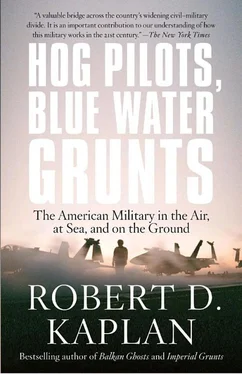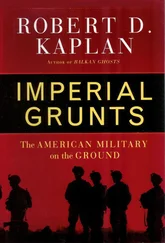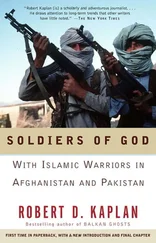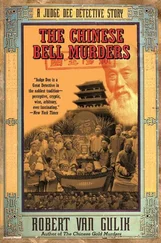Staff Sgt. Long’s father had been a marine, and Long joined the Corps after dropping out of community college in South Carolina and getting his last speeding ticket before losing his license. But after a decade of active duty in various combat-related roles, the next job he was offered just as 9/11 rolled around was as a recruiter. “Fuck that,” Long told me. “I’m an infantryman. I wanted to be with the grunts.” Long discovered that the best way to return to “the combat arms community” was to leave the Marines: to go off active duty and become a reservist, in which case, the War on Terror necessitated that because of his considerable experience he would immediately be called up and deployed overseas.
“I don’t have a family. I just want to do Reserve duty twelve months a year.” He got his wish. Since 9/11, Long had been in a uniform the whole time in Europe and Africa, often on training missions. “I just hope GWOT [the Global War on Terrorism] goes on for a long time. I’m still trying to get to Iraq and Afghanistan.”
The Nigerien troops jumped into the back of the pickups. I was impressed at how quiet and orderly they were. When we got to the range a few minutes later, they marched out onto the field and began setting up the targets. Then they lined up single file, their field caps in their hands, soon to be filled with bullets, as the rain fell on their heads. After prying open the Chinese-made sardine cans of 7.62mm ammunition for the Nigeriens’ AK-47 (Kalashnikov) rifles, Gunny Coughlin and the three other sergeants dumped the rounds into the waiting field caps. “Wait till the end of the day,” Long remarked. “They’ll actually pick up the brass cartridges on the field without being told to, and not in order to sell them. They bring their own medical equipment to the range. The Chadians weren’t like this. The Chadians couldn’t even hit the target paper while zeroing their rifles.”
The Nigeriens, I also noticed, displayed real muzzle awareness. When not shooting they kept their rifles pointed at the ground, and none of them ever once dropped them in the dirt.
The Nigerien military had participated in messy, violent peacekeeping missions in Côte d’Ivoire, Sierra Leone, Liberia, Burundi, the Congo, and Haiti. This Hausa-dominated military formed its own elite social class, with officers sending their young sons to cadet schools. It was a military that had proved its willingness to die in defense of U.S. interests; on several occasions Nigerien units had followed Salafist extremists in hot pursuit across the border into neighboring countries.
Waiting around, watching the host-country troops quietly load their ammunition into the magazines, I mentioned to Staff Sgt. Long that coups, being a feature of modernization, tended to happen when a military was more institutionally advanced than a civilian authority. Long broke in about the Philippine military and the inefficiency and corruption of successive civilian regimes in the Philippines. His insight was impressive. It turned out he had had a Filipina girlfriend. As Maj. Baker’s remarks about Chad and Niger had shown, marines sucked up knowledge wherever they could. Because their personal experience system was so different from that of academics and journalists like myself, their company was invigorating.
Dawn came, revealing sculptural acacias as birds made a racket in the trees and bruise-dark rain clouds raced across the sky. The rain held off the heat momentarily. I inserted my earplugs and walked out on the three-hundred-yard range with the four marines and twenty-three Nigerien soldiers. It was good to be on a rifle range again, where I spent much time in 2003 and early 2004 researching Imperial Grunts. Then I had followed a crawl, walk, and run approach with the U.S. military: observing Army Special Forces train host-country troops in Colombia and the Philippines before accompanying them on presence patrols and armed assaults in Afghanistan; then observing marines train and pull guard duty in Djibouti before accompanying them during urban combat in Iraq. Continuing this odyssey meant not going forward but backward—back to the basics, just as soldiers and marines themselves never ceased to do. When Special Forces and Marine battalions returned to Fort Bragg, North Carolina, and Camp Pendleton, California, from Afghanistan and Iraq, they returned to the rifle range. The very circular monotony of military life—going from training to exercises to deployments and back again to training—was fundamental to any experience of it. With the training of indigenous troops at the heart of power projection, and the rifle range the heart of such training in our era, the range was truly the center of it all.
“Every time you fire, a bad guy should bleed,” Staff Sgt. Bobby Rivera yelled. “Aim for the high center torso. Any hit is good. Don’t worry about carving up the bull’s-eye. This isn’t target shooting. It’s about fighting with a gun.” Rivera had a loud, grating, intimate Bronx accent. Because Rivera was a specialist in weaponry and the related field of close quarters combat, once on the range Gunny Coughlin deferred to the ethnic–Puerto Rican staff sergeant, even though he outranked him.
Maj. Moussa Salaou Barmou translated Rivera’s commands into French and Hausa for his soldiers. Maj. Moussa had trained with the U.S. Army at Fort Benning, Georgia, and with the Ivorians, Cameroonians, and Pakistanis. “I didn’t know what real combat was about until Fort Benning,” he told me. “The Americans have the money to simulate war in training, unlike most other armies. But I wish the Americans could see how the rebels settle in our border towns in the desert and marry local girls so that they become invisible, so that you don’t know who you have to fight.” Because Maj. Moussa outranked the American Marine noncoms, each made sure to address him as “sir.”
Rivera went on. The Nigeriens were only fifteen yards out from the targets—paper silhouettes of soldiers aiming their guns. “You will all fire a controlled pair followed by a hammer,” he explained. “A controlled pair is two slow shots. A hammer is two fast ones. Shooting a hammer, the rifle will recoil twice. You won’t have time to readjust, meaning with a fucked-up body position you will miss the target at least once. And that,” he screamed, “is unacceptable.”
Rivera demonstrated, repeating and yelling everything, sometimes mixing English with French in his Bronx accent: “En position. Levez la sécurité. Feu! Avancez.” Meanwhile, Coughlin, Long, and Singley worked quietly with the individual soldiers. Maj. Moussa did his part, shoving his knee behind that of one of his soldiers to ease him into a more correct body position. I remembered a young Philippine lieutenant who constantly had to be told by an American noncom to pay attention to his own troops. That wasn’t necessary here.
Rivera now made them repeat the drill from twenty-five yards out, this time while changing magazines. “Don’t bend down. Just let the magazine drop. Minimize your movements or you’re gonna fucking die.” He demonstrated shooting and changing magazines while closing the distance from twenty-five to fifteen yards. As I watched him, the impressive thing was what wasn’t there: wasted movements. “Notice,” he said, “I’m not fast. I’m just smooth. It’s not about speed, but about efficiency.”
“Même exercice,” said Rivera. Later he taught them how to unjam their AK-47 rifles while also changing magazines and closing the distance with the enemy. “This isn’t target practice,” he kept stressing at the top of his lungs. “This is about killing people.” During the entire morning Rivera checked the targets only once to see how accurately each soldier was shooting. As long as they were hitting the silhouettes or just the paper, he was happy. He wanted them to be comfortable handling a rifle on the move in combat. He knew from assaults on mud-walled compounds in Afghanistan in 2001, during the first weeks of Operation Enduring Freedom there, that survival was less a matter of a perfect shot than of getting a spare magazine quickly out of a side pocket.
Читать дальше












